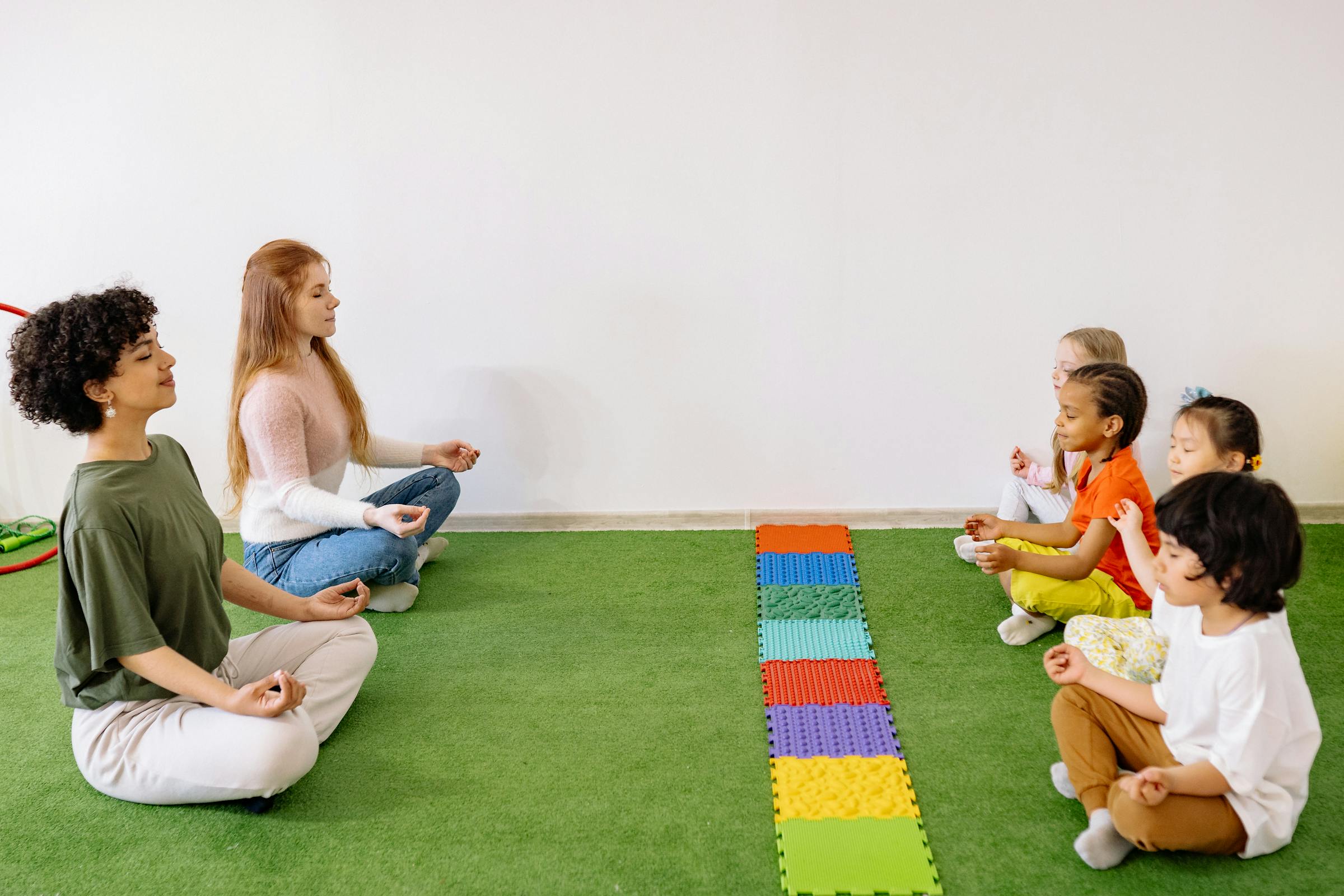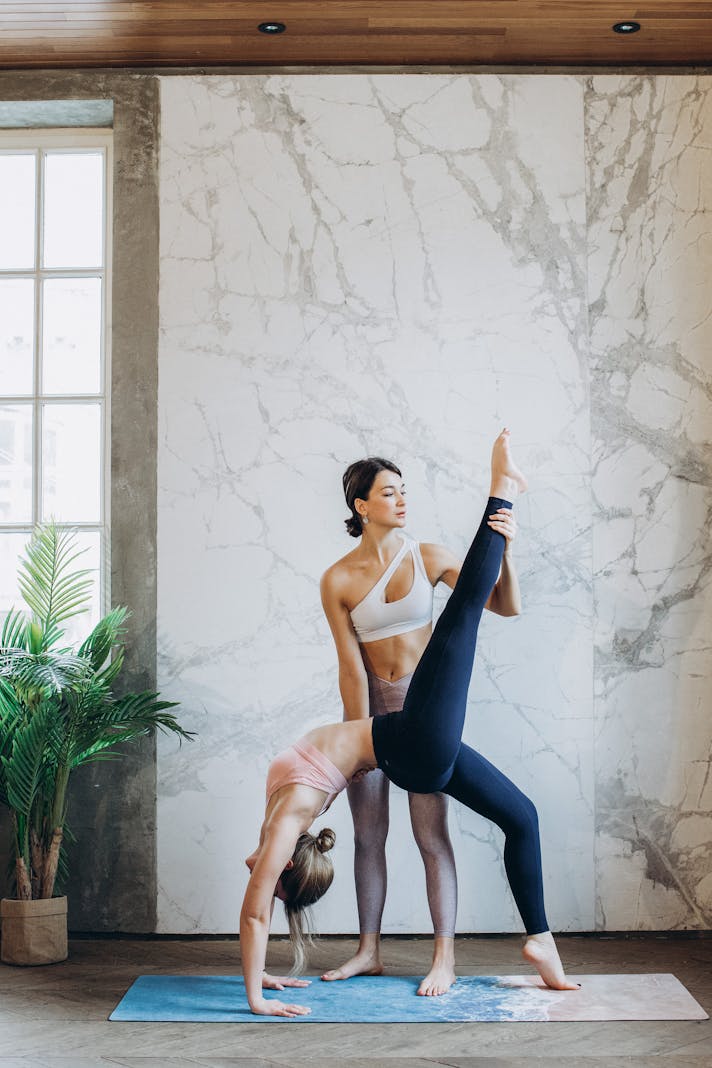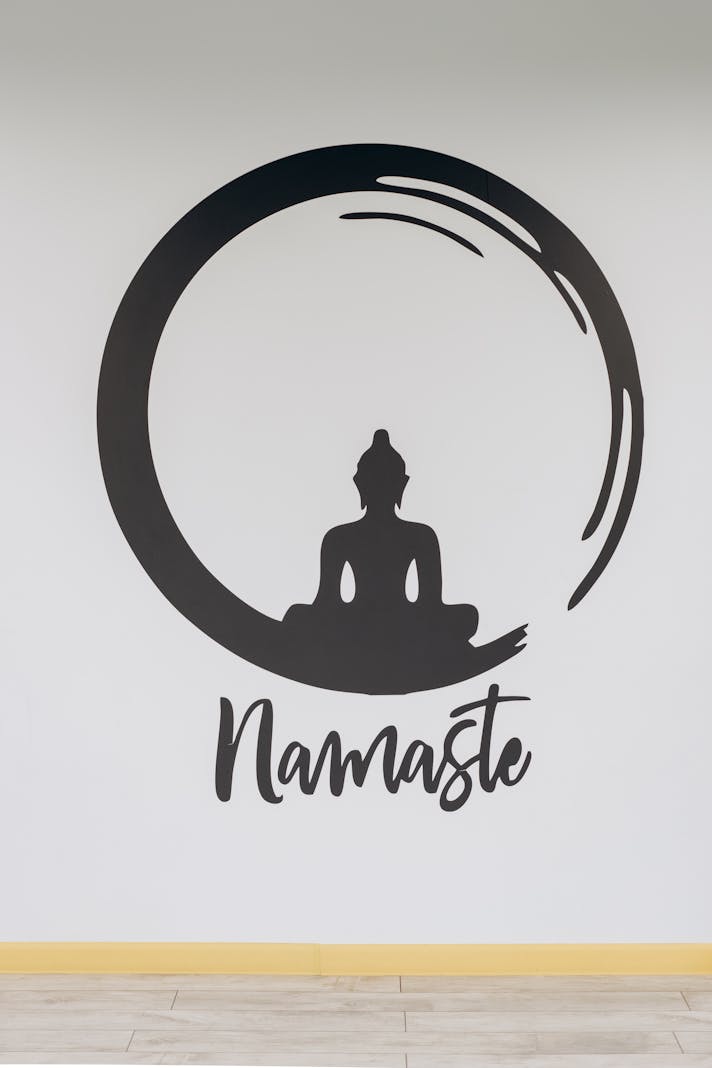Some Thoughts on OM

The three major religions of the Western world all testify to the power of the spoken word. Judaism claims “And God said, ‘Let there be light.”(Genesis 1:3), while Christianity states “In the beginning, there was the word.”(John 1:1) and Islam declaims "O you who have believed, fear Allah and speak words of appropriate justice.“(Quran 33:70). In Eastern spiritual traditions, from where yoga originates, this idea is taken literally, with adherents often chanting particular words that are said to contain great influence through their very sound. Perhaps the most familiar example is the simple “OM”, or “AUM”, considered by both Hindus and Buddhists to be the most sacred of all mantras.
Speech is a measurable energy emanating from the human body. What we say affects our relationships, both professional and personal – including that most individual of connections, the one between ourselves and however we conceive of a higher power. As such, using speech to pray or meditate is a way of establishing what the Beach Boys called ‘good vibrations’ and what quantum physicists measure as frequency. When we chant, we issue forth forms that can and do change the world as we know it.
“OM” and “AUM” are two different forms of the same seed bija, or sound syllable. It’s impossible to completely translate these, as they encompass energies that heal in a variety of ways. Yogic tradition holds that each chakra has an associated seed mantra, with “OM” corresponding to the Sahasrara, or Crown Chakra. Thus, when we chant “AUM,” we are activating the chakra responsible for our knowledge of truth and reality, the one that connects our physical being with the rest of creation.
When we take the time to chant, we activate the parasympathetic nervous system. This arrangement of organs is responsible for relaxation, a key element in alleviating or reversing many illnesses associated with stress. Chanting is thus a tool that helps us combat terminal busy-ness, Type A personalities, multi-tasking, or whatever current phrase that connotes 'fast living.' Various movements, from ‘Slow Food’ to ‘minimalism', have sprung up to combat perpetual and often mindless motion; all of these share the need to ‘live deliberately’, in the words of Henry David Thoreau, or to take the time to reflect, ponder, and balance all of the doings of our daily lives.
With this in mind, “OM” is used at the beginning of many different mantras, from Om Mani Padme Hum, which gives tribute to the meditation process itself, to Om Namah Shivaya, which honors the Divine in the form of Shiva, the Lord of the Dance. Consider also the simple Om Shanti, which seems to almost personify the concept of peace. By using the sound of “AUM” to begin the chant, each of these vibrationally connects the speaker to all that has and all that will be spoken. If repetition is indeed the only form of permanence, the sound of “OM” connects us with all who have ever chanted and all who will ever chant. For some of us, that is as close to the concept of God as we can truly understand.
At the end of a yoga class, chanting “OM” by itself is another form of connection. In a group chant, our voices meld and harmonize, creating a sound that becomes bigger than the sum of its parts. In chanting together, we send our combined energy out into each other and the world, reminding all of us to stop what we are doing periodically and take the time to honor this world, its creators, and the process of life itself. Following this with the customary Namaste serves to underscore the main principle of yoga, which is union. When we say “OM” together, we acknowledge our interdependence and our importance in the web of life; we demonstrate our conviction that the parts are as important as the whole, and that we are truly deserving of our place here.
Speech is a measurable energy emanating from the human body. What we say affects our relationships, both professional and personal – including that most individual of connections, the one between ourselves and however we conceive of a higher power. As such, using speech to pray or meditate is a way of establishing what the Beach Boys called ‘good vibrations’ and what quantum physicists measure as frequency. When we chant, we issue forth forms that can and do change the world as we know it.
“OM” and “AUM” are two different forms of the same seed bija, or sound syllable. It’s impossible to completely translate these, as they encompass energies that heal in a variety of ways. Yogic tradition holds that each chakra has an associated seed mantra, with “OM” corresponding to the Sahasrara, or Crown Chakra. Thus, when we chant “AUM,” we are activating the chakra responsible for our knowledge of truth and reality, the one that connects our physical being with the rest of creation.
When we take the time to chant, we activate the parasympathetic nervous system. This arrangement of organs is responsible for relaxation, a key element in alleviating or reversing many illnesses associated with stress. Chanting is thus a tool that helps us combat terminal busy-ness, Type A personalities, multi-tasking, or whatever current phrase that connotes 'fast living.' Various movements, from ‘Slow Food’ to ‘minimalism', have sprung up to combat perpetual and often mindless motion; all of these share the need to ‘live deliberately’, in the words of Henry David Thoreau, or to take the time to reflect, ponder, and balance all of the doings of our daily lives.
With this in mind, “OM” is used at the beginning of many different mantras, from Om Mani Padme Hum, which gives tribute to the meditation process itself, to Om Namah Shivaya, which honors the Divine in the form of Shiva, the Lord of the Dance. Consider also the simple Om Shanti, which seems to almost personify the concept of peace. By using the sound of “AUM” to begin the chant, each of these vibrationally connects the speaker to all that has and all that will be spoken. If repetition is indeed the only form of permanence, the sound of “OM” connects us with all who have ever chanted and all who will ever chant. For some of us, that is as close to the concept of God as we can truly understand.
At the end of a yoga class, chanting “OM” by itself is another form of connection. In a group chant, our voices meld and harmonize, creating a sound that becomes bigger than the sum of its parts. In chanting together, we send our combined energy out into each other and the world, reminding all of us to stop what we are doing periodically and take the time to honor this world, its creators, and the process of life itself. Following this with the customary Namaste serves to underscore the main principle of yoga, which is union. When we say “OM” together, we acknowledge our interdependence and our importance in the web of life; we demonstrate our conviction that the parts are as important as the whole, and that we are truly deserving of our place here.

Related Articles
Editor's Picks Articles
Top Ten Articles
Previous Features
Site Map
Content copyright © 2023 by Korie Beth Brown. All rights reserved.
This content was written by Korie Beth Brown. If you wish to use this content in any manner, you need written permission. Contact Korie Beth Brown for details.







